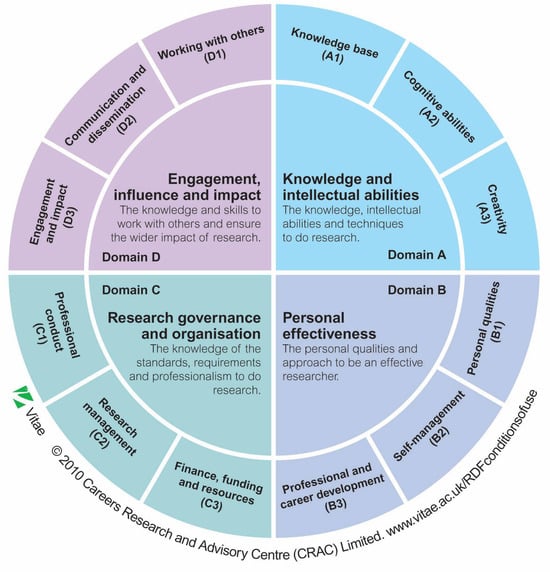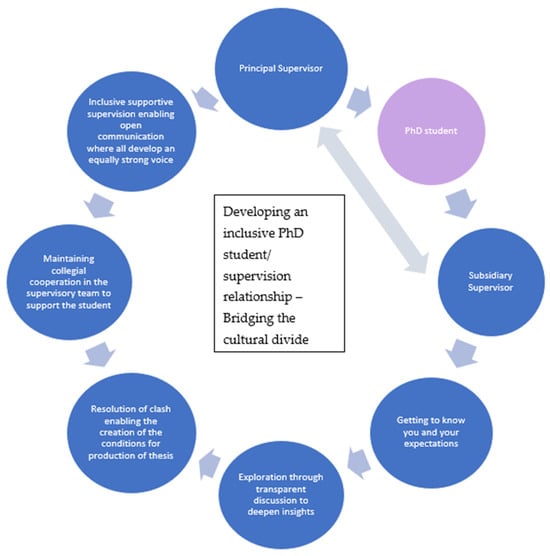Doctoral Supervision
A topical collection in Encyclopedia (ISSN 2673-8392). This collection belongs to the section "Social Sciences".
Viewed by 26498Editors
Interests: doctoral supervision; research culture; business and management; innovation; artificial intelligence; higher education; student learning gain; recursive abstraction; project management.
Interests: doctoral supervision; BBC; media history; broadcasting journals; higher education; student learning gain; recursive abstraction; PGR mental health and wellbeing; PGR education; PGR student experience; PGR research culture and environment
Interests: doctoral supervision; higher education; PGR mental health and wellbeing; PGR education; PGR student experience; PGR research culture and environment; volcanic and magmatic studies; mineralogy; geochemistry
Topical Collection Information
Dear Colleagues,
Doctoral supervision is a crucial element of the research process for students pursuing a doctorate degree. It involves the development of a close working relationship between student and supervisor, aimed at guiding and supporting the student’s academic journey. The role of the supervisor is to provide guidance on research methodology, help the student develop research skills, and provide constructive feedback on the student’s work. The ultimate goal is to ensure that the student produces a high-quality thesis that meets the standards of the academic community for their own discipline area.
Effective doctoral supervision requires a strong understanding of the research process, a deep knowledge of the subject matter, and excellent communication skills. The supervisor must be able to provide constructive feedback, whilst also being supportive of the student. Furthermore, the supervisor should also be able to help the student manage their time effectively, as doctoral research can be a lengthy and challenging process that must lead to an original contribution to knowledge in the specific field.
Doctoral supervision is not a one-size-fits-all approach. Different students have different needs and learning styles, and the supervisor must be able to adapt to these needs. This requires a willingness to be flexible and creative in their approach to supervision. The sharing of best practice is therefore necessary to raise standards and support supervisors, and there is a growing recognition of this necessity across the higher education sector.
This topical collection will bring together a range of papers that explore doctoral supervision best practice, with the ultimate aim of creating an essential resource that can be used by both supervisors and doctoral students. Papers can be either an encyclopedia entry (entries do not contain primary data, but instead provide an overview of the subject area, with a minimum of 30 relevant references) or a review (offer a comprehensive analysis of the extant literature, identifying current gaps or problems). To avoid duplication, we will only be able to accept one entry paper on each individual subject area. Suggested subject areas related to doctoral supervision include the following:
- Creating a positive research culture for doctoral students.
- Helping doctoral students to develop their writing techniques and skills.
- Enhancing doctoral supervision practice.
- Monitoring the progress of doctoral students.
- Recruitment of doctoral students.
- Supervisor relationships with doctoral students and co-supervisors.
- Supporting doctoral students through completion and final examination.
- Supporting doctoral students to disseminate and publish their research.
- Supporting doctoral students with their research.
- Supporting the mental health of doctoral students.
- Supporting the personal development of doctoral students.
- Supporting the professional and career development of doctoral students.
These are just examples of subject areas in which we are particularly interested in receiving entry papers, but we are also open to additional ideas. We look forward to receiving your contribution and being able to work together on this unique topical collection.
Dr. Martyn Polkinghorne
Dr. Julia Taylor
Dr. Fiona Knight
Collection Editors
Manuscript Submission Information
Manuscripts should be submitted online at www.mdpi.com by registering and logging in to this website. Once you are registered, click here to go to the submission form. Manuscripts can be submitted until the deadline. All submissions that pass pre-check are peer-reviewed. Accepted papers will be published continuously in the journal (as soon as accepted) and will be listed together on the collection website. Research articles, review articles as well as short communications are invited. For planned papers, a title and short abstract (about 100 words) can be sent to the Editorial Office for announcement on this website.
Submitted manuscripts should not have been published previously, nor be under consideration for publication elsewhere (except conference proceedings papers). All manuscripts are thoroughly refereed through a single-blind peer-review process. A guide for authors and other relevant information for submission of manuscripts is available on the Instructions for Authors page. Encyclopedia is an international peer-reviewed open access quarterly journal published by MDPI.
Please visit the Instructions for Authors page before submitting a manuscript. The Article Processing Charge (APC) for publication in this open access journal is 1000 CHF (Swiss Francs). Submitted papers should be well formatted and use good English. Authors may use MDPI's English editing service prior to publication or during author revisions.
Keywords
- postgraduate researcher
- doctoral student
- PhD
- doctoral supervision
- university
- higher education
2024
Jump to: 2023
2023
Jump to: 2024
Planned Papers
The below list represents only planned manuscripts. Some of these manuscripts have not been received by the Editorial Office yet. Papers submitted to MDPI journals are subject to peer-review.









